Researcher’s Bio Alternatives to Fertilisers & Pesticides Help 10000 Farmers Avoid Losses
Saddened by increasing farmer suicides, agriculture entomologist Sangita Sawalakhe innovated bio alternatives to chemical pesticides and fertilisers. She started Vidarbha Biotech Ltd and has helped more than 10,000 farmers in Maharashtra, Rajasthan, Gujarat, and Punjab switch to organic farming.
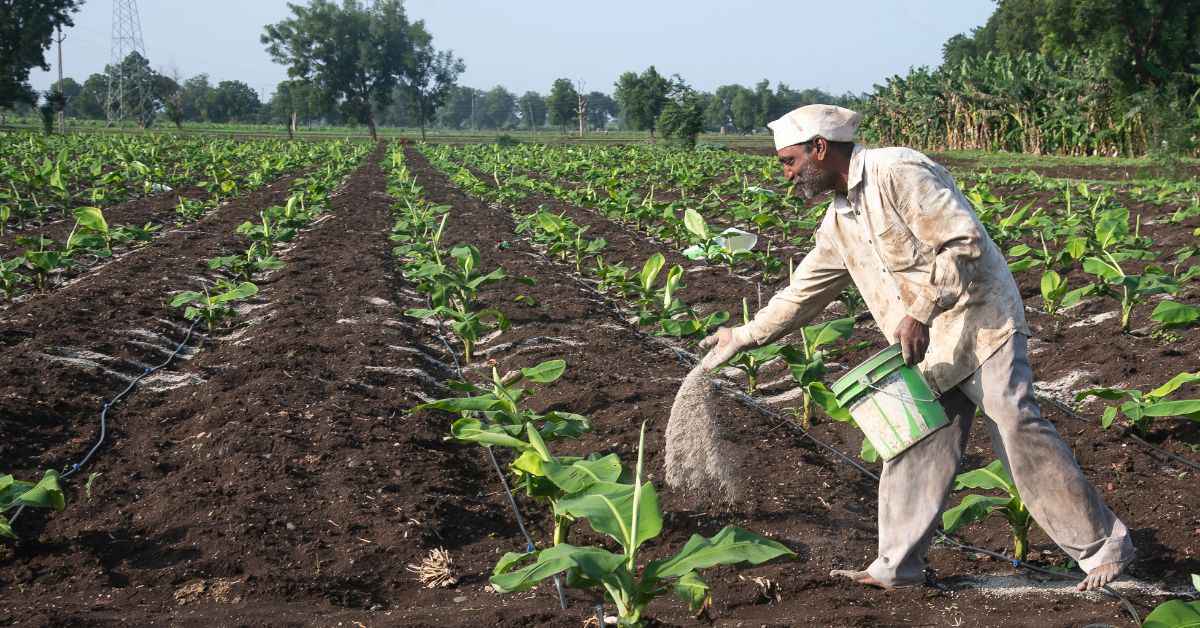
Even after spraying pesticides multiple times on her kapas (cotton) crop, Maharashtra’s Anuja Deshmukh could not get a good yield.
“Sucking pests like mealy bugs and aphids attacked the cotton crop and would not die even after multiple spraying. For a four-month season, I had to spray pesticides up to seven times. But, I found that their resistance to chemical pesticides had also increased,” Anuja tells The Better India.
The 45-year-old farmer had tried different options to get rid of pests and failed. So when she heard of bio-pesticides — a sustainable alternative to chemical pesticides — around five years ago, she was sceptical about the results.
“At the time, I could not believe that using bio-pesticides would be of any help. But since this was our last resort, I thought of giving it a try. Initially, I sprayed only 20 percent of my crop with it, and I got good results in flowering and my yield increased up to 30 percent,” she says.
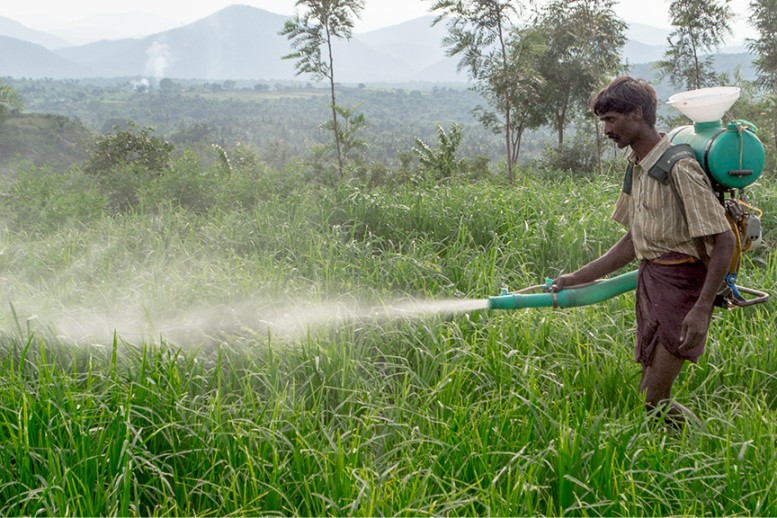
For Anuja, the results were so unbelievable and bountiful that she switched to majorly using bio-pesticides for her crops. Today, she sprays them on most of her crops, such as cotton, soybean, mulberry, and oranges, grown on 12.5 acres of field.
“In bio-pesticides, microorganisms control the pests, so there is no chance of resistance. Spraying bio-pesticides even once is sufficient. It not only increases our yield but also saves us Rs 10,000 per acre in pesticide expenses as well as additional labour costs. Our expenses have reduced by one-third the amount we used to spend before,” she says.
“Workers also had to face skin irritation while spraying chemical pesticides and contracted diseases. Thankfully, with these bio alternatives, it is a win-win situation for all of us as it saves us time, energy and money. Our soil fertility has increased, and earthworms are also returning to our soil,” she shares.
Behind Anuja’s joy is Yavatmal’s researcher Sangita Sawalakhe who has dedicated her life to innovating bio alternatives to chemical pesticides and fertilisers.
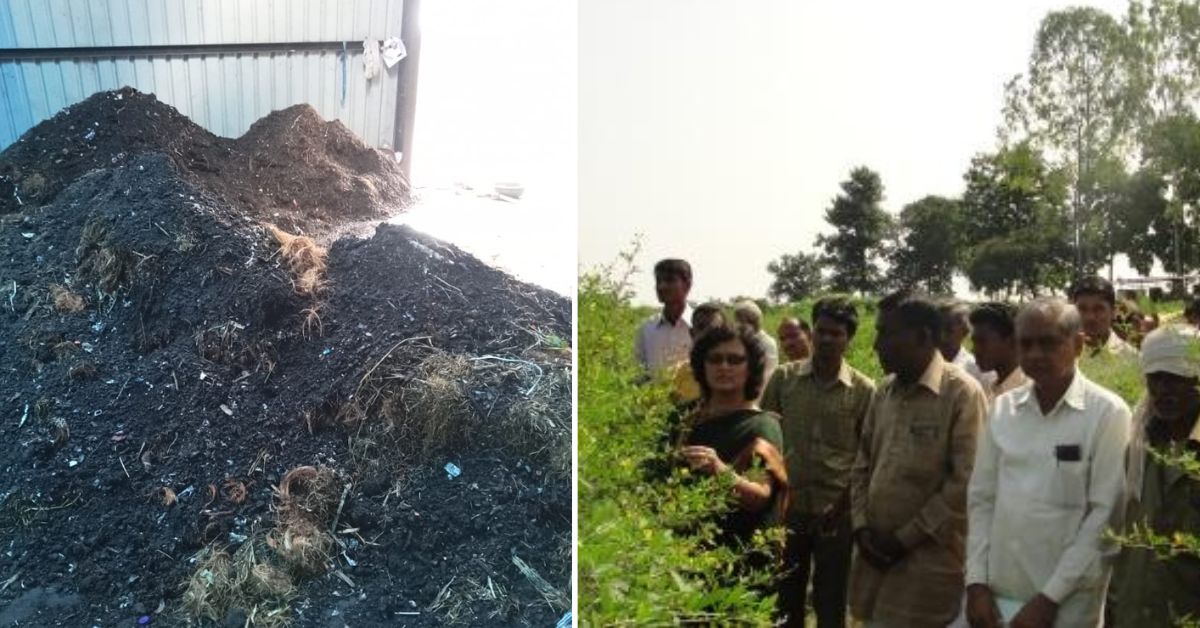
Over the past three decades, she has helped more than 10,000 farmers in Maharashtra, Rajasthan, Gujarat, and Punjab switch to organic farming with the use of bio-pesticides and bio-fertilisers.
Befriending microorganisms for crop health
In 1992, while pursuing her master’s in Agricultural Entomology, Sangita met farmers in the region infamous for farmer suicides.
“I learned that they spend a lot on buying chemical fertilisers and pesticides. Despite using chemicals for benefit, they would get less production. These expenses kept compounding their debt year by year. Unfortunately, this resulted in farmer suicides, which disturbed me a lot. That’s when I decided that I will find some cheaper alternative to chemical fertilisers and pesticides,” says the 55-year-old.
The recent data by the National Crime Records Bureau shows that agrarian distress took the lives of as many as 10,881 farmers and agricultural labourers in 2021. The majority of victims engaged in the farming sector were reported in Maharashtra at 37.3 percent.
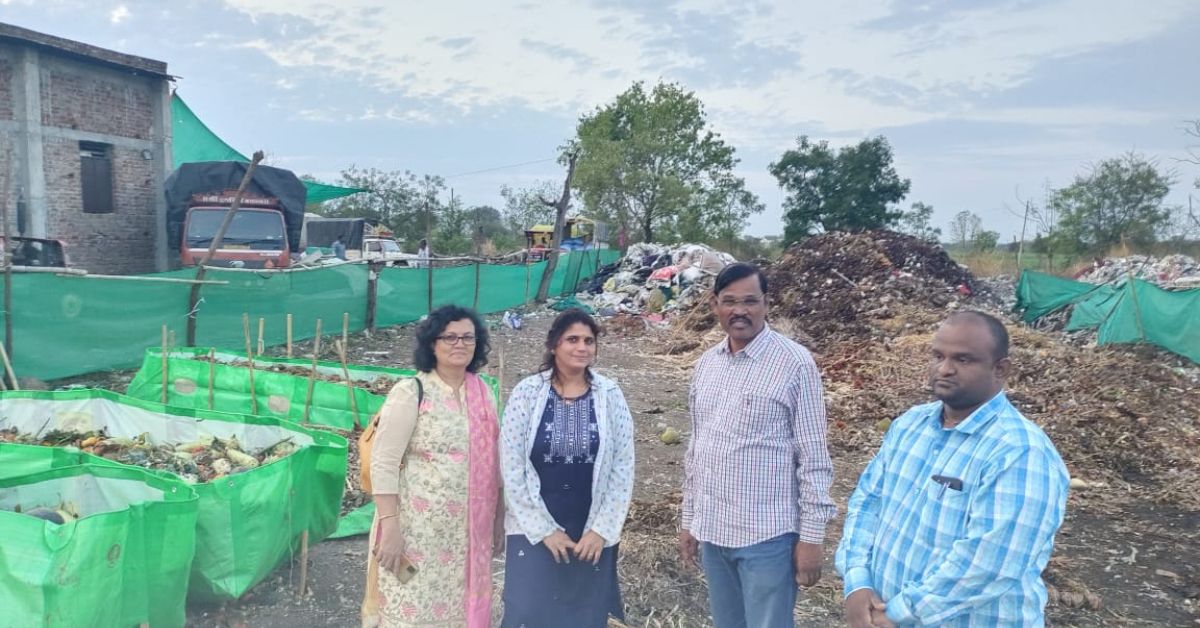
Meanwhile, driven by her motivation, Sangita started studying biological pest control systems. “Pests like white grub eat the root of crops and pose a big problem for farmers in fields. At that time, there was no usage of bio-pesticides. I started studying parasite predators and found that there are some microorganisms Trichogramma spp which control pest attack by destroying their eggs and larvae,” she says.
Eventually, she found bio alternatives to control pests like white grubs, mealybugs, mites, aphids, jassids, and more. And in 1998, her experiments resulted in Vidarbha Biotech Lab (VBL) which sells 16 kinds of bio-pesticides, bio-fungicides, and bio-fertilisers.
“We make these products using microorganisms like fungi, bacteria and viruses which cannot be seen with the naked eye but are useful for crops. We term them as friends of crops,” she says.
Sold in liquid as well as powder form, these products are priced between Rs 250 and Rs 400. The products have certification from the Central Insecticide Board, Faridabad. Other than conventional farming, these bio-pesticides and bio-fertilisers can also be used in hydroponics and aquaponics types of farming, says Sangita.
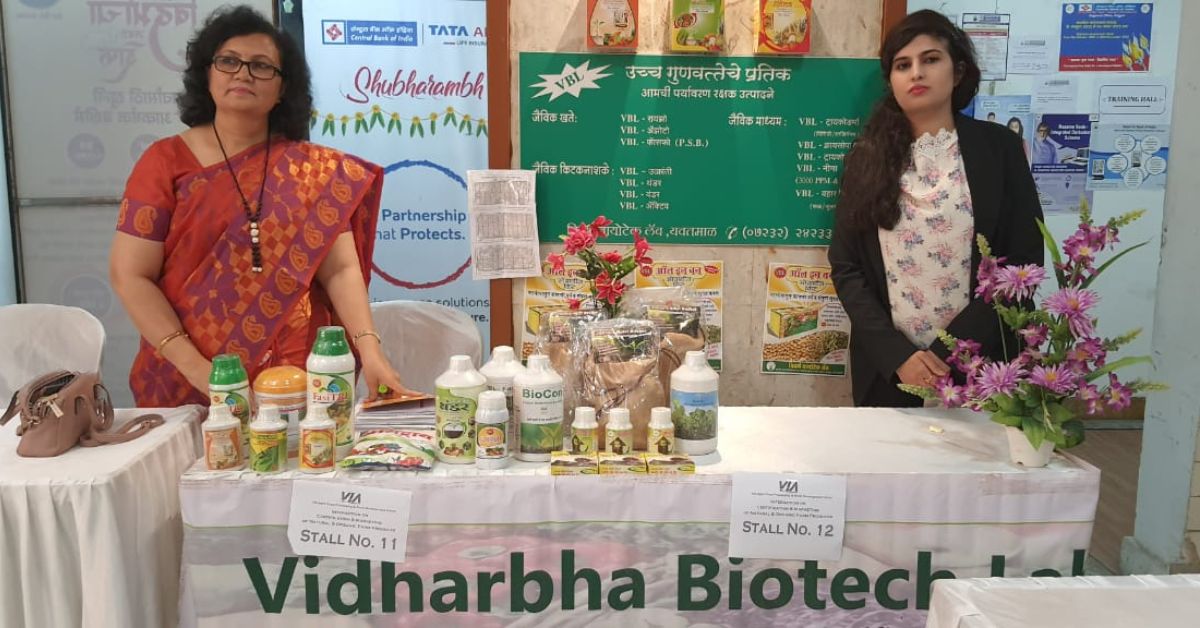
Why use bio alternatives?
The agricultural entomologist lists four major benefits of using bio-pesticides and bio-fertilisers in the crop instead of chemicals.
Kills pests and prevents disease: Sangita says, “The direct advantage of these alternatives is that they control pests and diseases, and boost nutrients in soil by killing pests in their larvae and pupa stage. This prevents pests from spreading in the crop.”
Protects seed: “Microorganisms continue to secrete nutrients and maintain moisture near seeds so that even in case of no rain, it will prevent the seeds from dying,” she adds.
Boosts soil fertility and maintains C/N ratio: “These microorganisms also make the soil fertile by increasing the porosity of the soil. It also helps maintain the carbon-to-nitrogen (C/N) ratio in the soil. A ratio of 18:1 should be maintained for a good yield,” she informs.
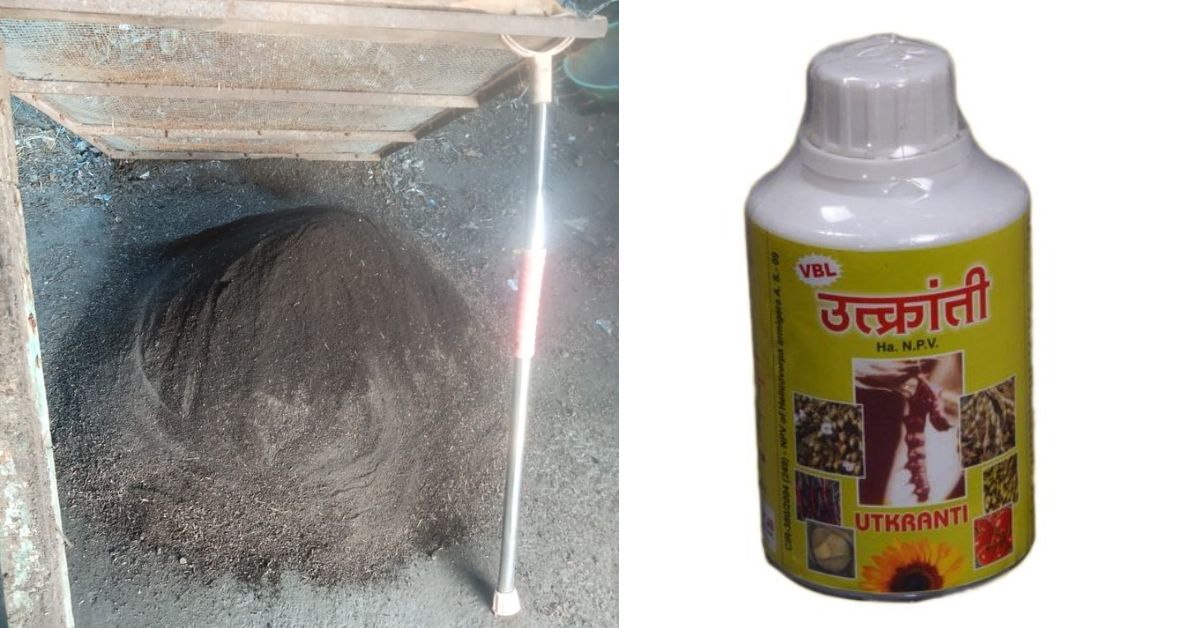
This means that the carbon component should be at least 18 parts as compared to one part of nitrogen in the soil. But with chemicals, it is the other way around. “When farmers use chemical fertilisers like urea, the nitrogen increases thereby decreasing the carbon content. Bio alternatives help balance this with the help of organic matter compost,” adds the researcher.
Reduces one-third of expenses: Sangita says that bio alternatives also save one-third costs of farmers as compared to chemical fertilisers. “Farmers typically use two to three bags of 50 kg each of chemical fertilisers in one acre of land. However, using bio-fertilisers, only 1 litre is needed, which is a significantly smaller amount,” she adds.
Sangita further informs that farmers should add bio-fertilisers within the first month of the sowing period for a better yield.
“Apart from bio-fertilisers, less dosage of bio-pesticides and bio-fungicides is used. As microorganisms keep multiplying, you do not have to spray multiple times. This reduces farmer’s input costs by one-third and prevents them from compounding debts,” she adds.
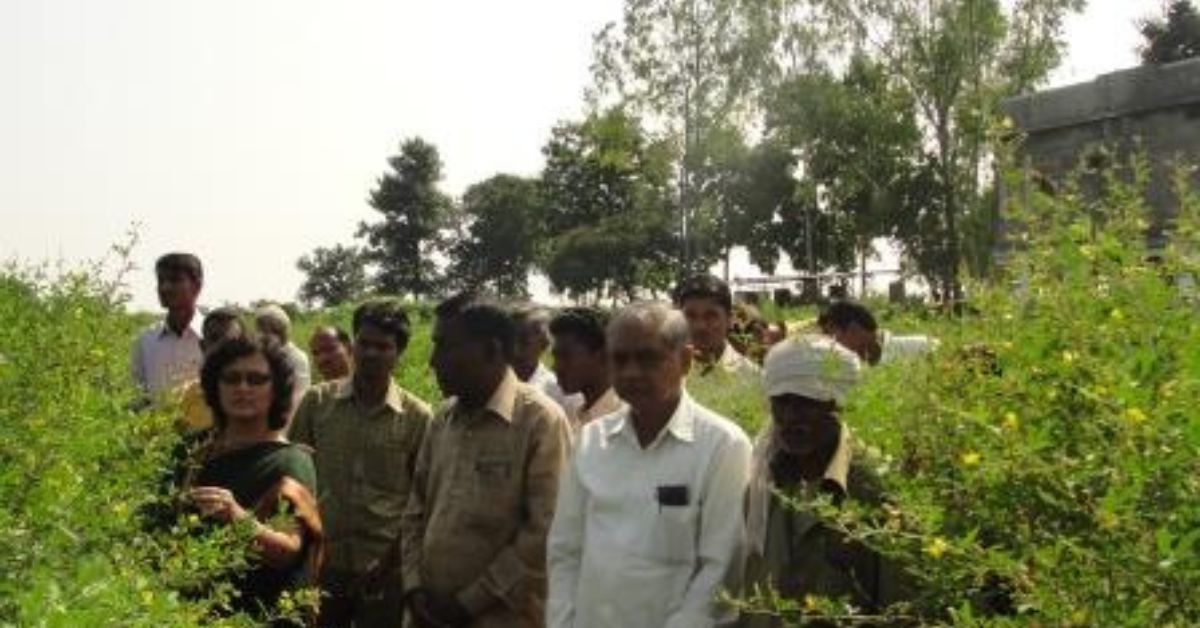
However, there are some limitations associated with bio alternatives.
“These alternatives cannot be used simultaneously with chemicals or in temperatures exceeding 45 degrees Celsius in open fields, as it would harm microorganisms. Microorganisms can tolerate temperatures up to 40 degrees Celsius and require a humid environment with shade to thrive,” she says.
As per Sangita, the demand for these bio alternatives has increased over the years.
“Farmers are diverting towards bio alternatives and organic farming. When I introduced farmers to these products, they could not believe that these can replace chemical fertilisers. But today, we have so many farmers who find my products useful. These bio alternatives will bring a revolution in the farming sector, and to be able to contribute to that is extremely satisfying,” she shares.
For her work, Sangita has been felicitated with many awards including the Honour of Excellence award by the Union Ministry of Agriculture in 2018 and the Maharashtra Udyogini Puraskar in 2008. If you found our stories insightful, informative, or even just enjoyable, we invite you to consider making a voluntary payment to support the work we do at The Better India. Your contribution helps us continue producing quality content that educates, inspires, and drives positive change. Choose one of the payment options below for your contribution- By paying for the stories you value, you directly contribute to sustaining our efforts focused on making a difference in the world. Together, let’s ensure that impactful stories continue to be told and shared, enriching lives and communities alike. Thank you for your support. Here are some frequently asked questions you might find helpful to know why you are contributing?

Edited by Pranita Bhat; All picture credits: Sangita Sawalakhe
Source:
Accidental Deaths & Suicides in India 2021: By National Crime Records Bureau, Ministry of Home Affairs.
This story made me
-
97
-
121
-
89
-
167











